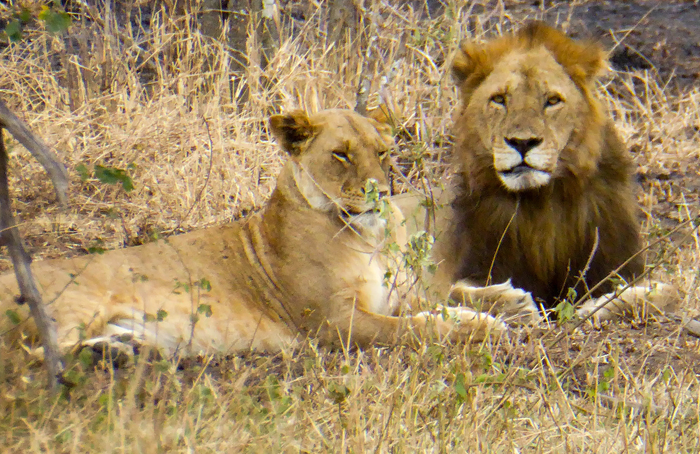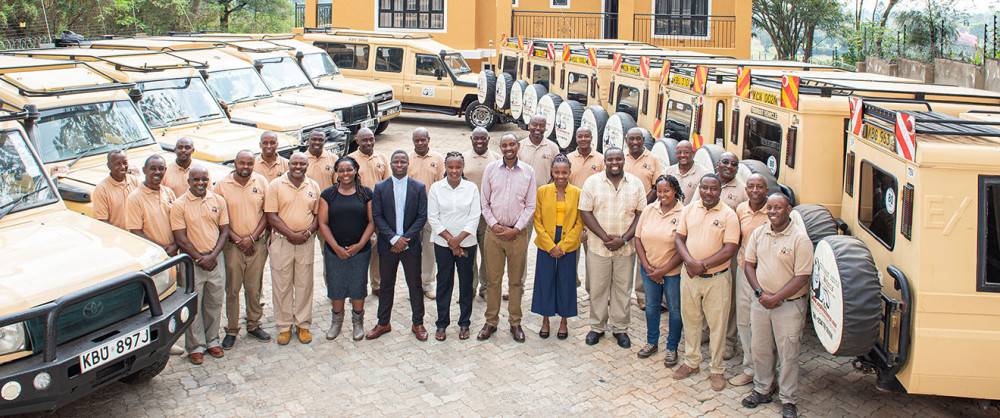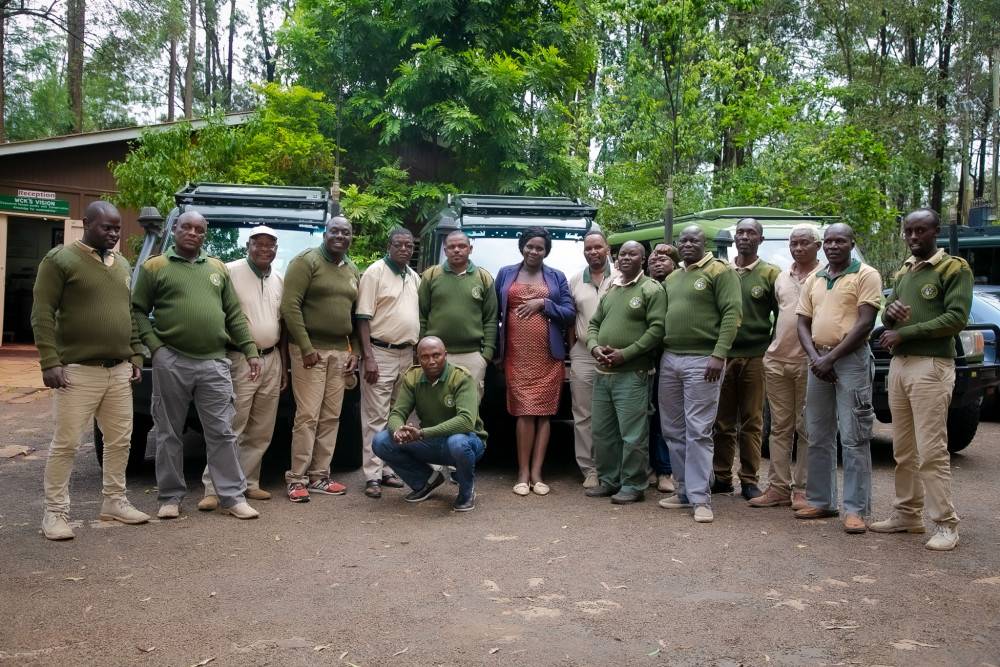Top Reasons To Choosing Kenya Safari Packages Prices
Top Reasons To Choosing Kenya Safari Packages Prices
Blog Article
What Security And Safety Factors Should I Be Aware Of While Traveling In Mombasa, Kenya?
It is crucial to keep an eye on the safety and security issues when visiting Mombasa in Kenya. This will help ensure an enjoyable and stress-free excursion. Here are some important tips to keep in mind.
1. General Security
Stay Informed: Keep up-to-date with local news and any travel advisory issued by your country of residence.
Register with Your Embassy. If you live located in Kenya and have an embassy or consulate in Kenya, make sure to register with them so that they can help in the case in the event of an emergency.
2. Health safety precautions
Immunizations: Make sure you're current on your routine vaccinations and think about additional vaccines like Hepatitis A, Hepatitis B, Typhoid, and Yellow Fever.
Mombasa is a malaria-endemic area and is one to avoid. Use antimalarial medications as well as insect repellents. Wear long sleeves in the evening and sleep in mosquito nets.
Food and water safety. Drink bottled water and stay clear of eating ice. Be aware of street food.
3. Personal Safety
Avoid walking on your own after darkness. Stick to areas that are well lit and well-populated. Beware of walking in darkness on the beach or in areas with a secluded.
Protect Your Assets from Vandalism - Use hotel safes to keep cash, passports, and other important items. Do not display expensive items like electronic devices or jewelry.
Choose reliable travel services: Select certified taxis and ride-hailing firms or take a ride offered by your hotel. Avoid unmarked cabs.
4. Local Laws and Customs
Dress respectfully and with respect, particularly when visiting places of worship. Be aware of local traditions.
Kenya has strict laws regarding drugs with harsh penalties. Beware of illegal drugs.
Always seek permission prior to photographing, especially in areas of rurality and military or government buildings.
5. Beach Safety and Water Safety
Safety in swimming means being aware of local guidelines on currents and conditions. Be sure to use designated swimming areas.
Marine Life: Be mindful of marine animals like jellyfish and Urchins. If you are walking along a beach, you should wear the right footwear.
6. Crime Prevention
Petty Crime: The theft of purses and bag snatching are common especially in crowded areas. Be vigilant and keep all your possessions close.
Scams: Beware of people who offer generous assistance or deals that appear too appealing to be real. Use licensed tour companies.
Emergency Contacts: Be familiar with emergency numbers in your area, including Fire (999) Ambulance (999), and Police (999). You should always have the contact information of the embassy or consulate in mind.
7. Natural Hazards
Weather: Mombasa enjoys a tropical climate that can lead to floods and heavy rainfall. This is particularly true during the rainy seasons of April-June and from October through November. Keep track of forecasts for weather.
Sun protection Use sunscreen as well as hats, wear sun protection and stay hydrated in order to prevent heat exhaustion and sunburn.
8. Travel Insurance
Comprehensive Insurance coverage. Be sure to have a travel insurance policy that covers medical emergencies, theft, loss or travel interruptions. Verify that your policy includes insurance for the activities you intend to take part in, like water sports.
With these security precautions You can rest and take in the beauty of your Mombasa holiday. Check out the recommended island snorkeling in mombasa for website recommendations including safaris beach, african safari excursions, kenya beach and safari holiday, kenya safari holiday packages, safari and tours, mombasa tours, african safari tours kenya, tours & safaris, africa tours and safaris, african safari excursions and more.
What Cultural Sensitivities Must I Be Aware Of When I Travel To Mombasa In Kenya?
To ensure respectful interactions with locals as well as enrich your travel experience, it is essential that you are culturally sensitive when you are on vacation in Mombasa. Here are a few key points to consider:
1. Respect local dress codes
Mombasa's Muslim people are large. Dress modestly when in public spaces, religious sites or your local area. Dressing your knees, shoulders, and chest is appropriate.
Beachwear. Swimwear can be worn on the beach, but must be covered up if visiting nearby restaurants or shops.
2. Religious Sensitivity
Visit Mosques. If you want to visit a mosque that is Muslim make sure you have permission to enter and wear traditional attire. Women are advised to cover their heads. All visitors should take off their shoes prior to entering.
Prayer Time - Keep track of five daily prayers times. Be considerate during these times, particularly if there is a mosque nearby.
3. Photography Etiquette
Permission: Always seek permission prior to taking pictures of people, particularly in rural or in traditional environments. Some people may be uncomfortable or believe it's an invasion.
Restricted Areas: Do not take photographs of locations that are sensitive, such as military installations, government buildings as well as certain cultural sites in which photography is not permitted.
4. Social Interactions
greetings: greeting people courteously is essential. Swahili greetings consist of "Jambo". Handshakes are generally accepted by both genders however, for Muslim women it's acceptable to wait for their hand to be extended first or salute verbally.
Personal Space: Respect the privacy of one's self and be mindful of physical contact, particularly with the other sex in a more conservative setting.
5. Cultural Rules and Taboos
Public Displays: It is generally considered inappropriate to show the affection of a person in public.
The use of the left hand: Left-handed hands have historically been considered to be unclean. You should use your right hand for eating or greet people, as well as exchange money or goods.
Foot: It's rude to show the soles or show your feet to other people.
6. Language and Communication
Basic Swahili Learn some basic Swahili phrases can help you establish relationships and show respect to the locals. Other phrases of common use include "Asante", (thank you), and "Habari", (how are you?). ).
Politeness. Communicate politely and patiently. Kenyans expect courteous and respectful interaction.
7. Respect Local Customs
Be respectful of the customs and rituals. If you have been invited to an local event, pay attention and be respectful of your hosts.
Bargaining can be commonplace at markets and in local shops. Be sure to conduct it respectfully and with an attitude of humor. It's not a tactic to fight however it is a social one.
8. Alcohol and Smoking
There is alcohol available, but it is best to drink it in a discreet manner in areas dominated by Muslims. Beware of drinking in public.
Smoking: Smoking is typically not allowed in public places. Be sure to look for areas designated for smoking.
9. Environmental Respect
Littering. Avoid littering. Make sure you get rid of your trash properly. Be respectful of wildlife and natural habitats.
Help conservation efforts by showing respect for local wildlife and habitats. Avoid purchasing products made with endangered species.
10. Helping Local Communities
Local Businesses - Help local markets and businesses.
Responsible Tourism: Participate in responsible tourism and select sustainable and environmentally friendly tourism options which benefit the local communities.
It is possible to increase your understanding of the local culture by following these guidelines for cultural sensitivity. Have a look at the most popular kenya day tours for site advice including safari excursions, safari trips in kenya, trips to kenya, tour firms in kenya, kenya tours and safaris, trip tour companies, kenya travel, africa tours, kenya safari holiday packages, cheap kenya safari packages and more.
What Financial Planning Considerations Should I Be Aware Of When Planning A Trip In Mombasa?
A careful planning of your finances will ensure an enjoyable and relaxing trip in Mombasa. Be aware of these factors that affect your finances:
1. Budgeting
Accommodation: Prepare ahead and research your accommodation. Prices vary widely based upon the kind of property and the location of the lodging.
Include costs for transportation such as taxis, flights and matatus (local transportation) and car rental.
Food and dining Food and Dining: Budget for meals, including dining out, and snack items. You will find everything from inexpensive local eateries to dining establishments with a high-end ambiance.
Plan your activities and tours: Include the cost of entrance fees, guided tours, and other activities, such as safaris, water sports or cultural tours.
2. Currency and Exchange Rates
Kenyan Shilling (KES): This is the currency of Kenya. Find out the exchange rates.
Currency Exchange: Exchange of money is recommended to be done through reliable banks or exchange offices. Avoid exchanging currency on the street.
ATMs are located in Mombasa. Ensure your card is suitable for international withdrawals and be aware of any charges.
3. Payment Methods
Cash: Keep some cash on you for small purchase, tipping, or other places that do not accept credit cards.
In hotels, restaurants and major stores, major credit cards are accepted. Inform your bank of your travel plans so that you don't risk your card from being denied access.
Mobile Payments: M-Pesa is a widely used mobile payment system in Kenya. If you have an existing local SIM, it's a good option to make transactions.
4. Cost-saving Tips
Travel off-Season. You can save on hotel and airfare by traveling in the shoulder season or the low-season (April-June and October-November).
Make sure to book in advance to get better rates on flights.
Local eateries. There is a chance to enjoy a more authentic dining experience at local eateries and food stalls.
5. Tipping
Tipping has now become a Kenyan tradition. In restaurants, 10% is the norm to tip if services are not included. You can tip hotel staff guide, drivers and other staff at your own discretion.
Small gestures of appreciation are always appreciated. Porters should be tipped KES 50-100 per bag and housekeepers KES $100 per day.
6. Emergency Funds
Reserve Funds: Maintain an emergency stash of cash and ensure you have access to extra cash via a debit or credit card in case unexpected expenses arise.
Travel Insurance: Buy a comprehensive travel insurance that includes medical emergencies as well for trip cancellations. It also protects you against theft and loss.
7. Security
Use hotel safes for storing valuables such as cash, passports, and other valuables. Always be cautious when using an ATM, especially at night.
Avoid carrying large sums. Don't bring large sums of money with you. Split your cash and cards among a wallet as well as the safest place.
8. Local Transactions
Bargaining: At local markets it is commonplace to bargain. With courtesy and humor make sure you bargain a fair and reasonable price.
Receipts and records Keep records of your the major transactions and purchases. It can be useful for budgeting purposes and also in the case of a dispute.
9. Understanding Fees
It is possible to check with your bank to see if there are any fees related to international withdrawals. Certain ATMs might charge an additional fee when using foreign cards.
Currency Conversion Costs. Be aware of any currency conversion charges imposed by your bank if you use a credit or debit card overseas.
These financial planning ideas can help you control your finances and enjoy an enjoyable vacation in Mombasa. Take a look at the top rated airport transfers kenya for more examples including africa tours and safaris, african safari africa, trips to kenya safari, mombasa packages, mombasa travel agency, kenya tours and safaris, safari trips in kenya, safar kenya, african safari excursions, mombasa safari and more.